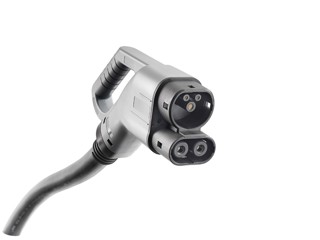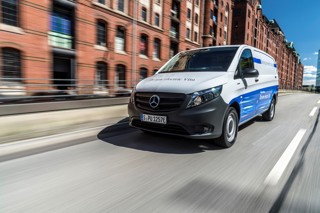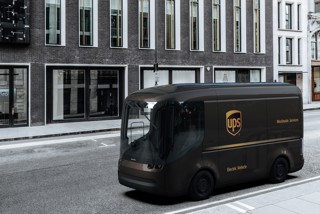The Freight Transport Association (FTA) believes that a ban on the sale of new petrol, diesel or hybrid vans in the UK by 2035, is not feasible.
The Prime Minister Boris Johnson made the announcement yesterday (Tuesday February 4) that the ban would be brought forward to 2035 and will now include hybrids.
The Government had previously announced they would end the sale of new fossil fuel vehicles from 2040 but would still allow the sale of hybrid vehicles that had a zero-emission capability.
However, speaking at the Conservative party conference last October, transport secretary Grant Shapps hinted at bringing the date forward.
But, the FTA says the 2035 target is very ambitious for the van market. Christopher Snelling, head of UK policy at FTA, explained: “Unless the Government takes urgent action to solve the challenges around power supply and the availability of electric vehicles, it will not be an achievable feat.
“FTA and its members fully support the government’s ambition to decarbonise the road transport industry – our Electric Vehicle Report shows that operators want to switch to electric – but we need to see urgent action from government to ensure the right infrastructure is in place and the market is ready.”
According to FTA, the key issue is power supply; the depots and homes where vans are currently stationed do not have sufficient power supply to charge the vehicles.
Snelling continued: “Logistics companies do not control or own this power supply infrastructure; FTA is calling on the government to share its strategy on how it plans to power the UK’s fleet of millions of vans.
“Until the issue of power supply is resolved, it is very unlikely – in the view of FTA – that 100% of new vans bought after 2035 will be electrically powered.”
The Society of Motor Manufacturers and Traders (SMMT), which represents car and van makers in the UK, also says that the Government has set the new target without a plan showing how it intends to get there.
























Sage & Onion - 06/02/2020 17:59
Fifteen years until hybrids are no longer available to buy? Well we will have to see the landscape then in terms of what range new EV's will provide and what the charging infrastructure and charging times looks like etc, but if the market and infrastructure isn't ready to meet the needs of business then I can see plans put in place in 2033/34 for leasing contracts to be taken out on ICE vehicles for a much longer term, or for cash rich fleets that buy outright, maybe buying two vehicles to replace one and make them last two or three times longer by alternating their daily/weekly use. It would keep ICE maintenance workshops employed longer too.